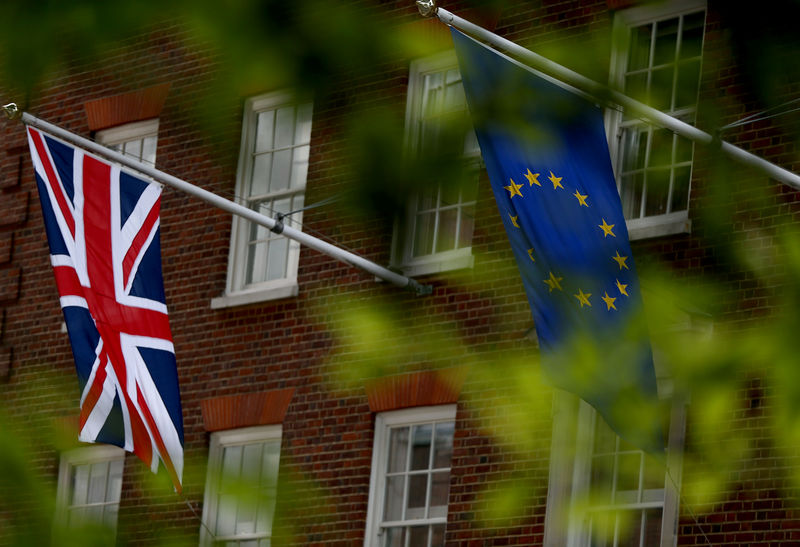LONDON (Reuters) - Britain does not have the capacity to individually negotiate new trade deals with all the European Union's existing partners, a senior official from the trade department said, explaining why it is pursuing "copy and paste" versions of current EU deals.
Britain and Japan agreed last week that an EU-Japan trade deal would form the basis for their own trading arrangements after Britain leaves the bloc. The government said it wanted to replicate other external EU trade deals in time for Britain's March 2019 exit and then adjust them over time.
But a senior official, who declined to be named, said the policy was in part dictated by a lack of capacity at the Department for International Trade.
"We can't do 40 FTAs (Free Trade Agreements), we haven't got the capacity to do that," the official said.
The Department for International Trade was set up after last year's decision to leave the EU, with a mission to tee up trade deals across the world to be signed after Brexit. The ability to do such bilateral deals has been promoted by the government as a major selling point of leaving the bloc.
But after decades of relying on the EU to negotiate its trade deals, the department has had to hire negotiating teams almost from scratch. In August, it rejected criticism of its hiring policy and said it now had more than 300 staff working on trade policy and 3,200 worldwide.

The EU has around 40 FTA agreements with external countries, the biggest being those with Switzerland and South Korea.